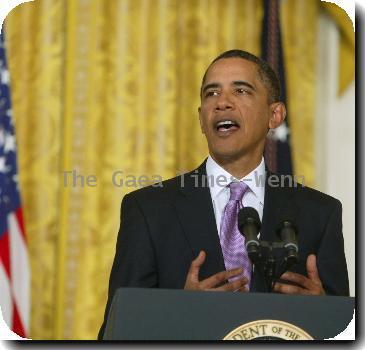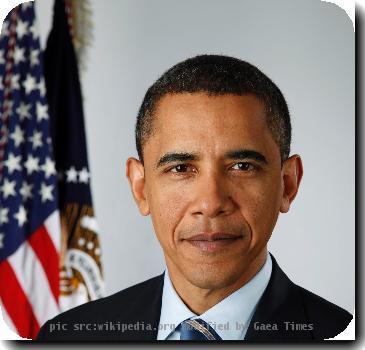Collapse of Dutch government over its Afghan mission bodes ill for NATO ambitions
By Arthur Max, APSaturday, February 20, 2010
Fall of Dutch government bodes ill for Afghanistan
AMSTERDAM — A furious dispute over the war in Afghanistan brought down the Dutch government Saturday, bitterly divided on whether its forces should stay or go as NATO deepens its engagement against the Taliban.
After a contentious 16-hour cabinet meeting, a key partner walked out of Jan Peter Balkenende’s coalition, accusing the prime minister of reneging on a pledge to withdraw 1,600 troops this year from Uruzgan province, where 21 Dutchmen already have died.
The collapse of the center-right government was the result of discontent with policies that made the Netherlands a loyal ally of the United States in Afghanistan and previously in Iraq, and was a sign of the difficulty President Barack Obama faces in maintaining the international contingent in the Afghan battlefield at full strength.
Canada has said it intends to withdraw its entire 2,800-strong force from Afghanistan by the end of 2011. The Canadian contingent, the third-largest after the U.S. and Britain, serves together with the Dutch in Uruzgan.
The allies account for roughly half the 87,000 NATO troops in Afghanistan. Most European nations — including France and Germany — have been reluctant to boost their troop levels even as the U.S. pours thousands more soldiers in, limiting their contributions mainly to instructors for the Afghan army and police.
“NATO cannot and does not want to intervene in internal discussions of individual nations, but certainly we want to keep this as a team effort,” said NATO spokesman James Appathurai in Brussels.
Balkenende announced before dawn that the marathon cabinet session had failed to bridge differences with the Labor Party, which rejected a request by NATO Secretary General Anders Fogh Rasmussen to extend the mission of Dutch forces deployed in Uruzgan since 2006.
“Where there is no trust, it is difficult to work together. There is no road along which this cabinet can go further,” Balkenende said.
Labor Party leader Wouter Bos accused Balkenende of backing out of the deal stuck before the government was installed, three years ago Monday.
“A plan was agreed to when our soldiers went to Afghanistan,” said Bos, the finance minister. “Our partners in the government didn’t want to stick to that plan, and on the basis of their refusal, we have decided to resign.”
Elections were expected in May. Balkenende will remain in office as head of a minority government until a new coalition is formed — which could take months after the election, given the fractious state of Dutch politics.
The voting could see a further boost for extreme anti-immigrant populist Geert Wilders, whose ranking in the polls makes him a contender as leader of the largest party in the next parliament. Wilders also is a fierce critic of the Afghan deployment.
Tension had been building between Balkenende and Bos for months, but the breaking point was precipitated by a note from NATO’S Rasmussen earlier this month asking the Dutch to stay on in Uruzgan in a scaled-down mission.
The respected NRC Handelsblad newspaper reported Friday that Rasmussen’s note was drafted after the Dutch delegation to an Afghan support conference in London last month told the NATO chief it would be favorably received.
But that position did not have the support of Labor, the coalition’s second largest party, which insisted on keeping the August deadline for a pullout.
“Rasmussen continues to believe that the best way forward would be a new smaller Dutch mission, including a provincial reconstruction team in Uruzgan, to consolidate the success that the Dutch have had, and to transition to Afghan lead,” said Appathurai, the NATO spokesman.
The Dutch drawdown comes as NATO is struggling to raise the 10,000 additional troops called for by the top commander in Afghanistan, U.S. Gen. Stanley McChrystal, to back up the 30,000 American reinforcements being deployed there.
Balkenende’s allies argued that a pullout from Afghanistan would damage the Netherlands’ reputation as a nation that carries more than its weight in international peacekeeping missions.
A recent report by the U.S.-based global intelligence firm Stratfor said the Dutch reticence toward the Afghan conflict is common with other European allies, at a time when the continent faces a financial crisis and low popularity among the public.
“With Europe still facing a possible return of the economic recession in 2010, making significant contributions to the effort in Afghanistan will be difficult,” the Stratfor study said. “The second problem is political support and European public opinion.”
It was still unclear if the Netherlands would keep the pullout deadline or stay on.
“The future of the mission of our soldiers in Afghanistan will now be in the hands of the new Cabinet,” said Deputy Defense Minister Jack de Vries.
Associated Press writers Slobodan Lekic in Brussels contributed to this report.
Tags: Afghanistan, Amsterdam, Asia, Barack Obama, Central Asia, Europe, Geography, Netherlands, North America, United States, Western Europe

